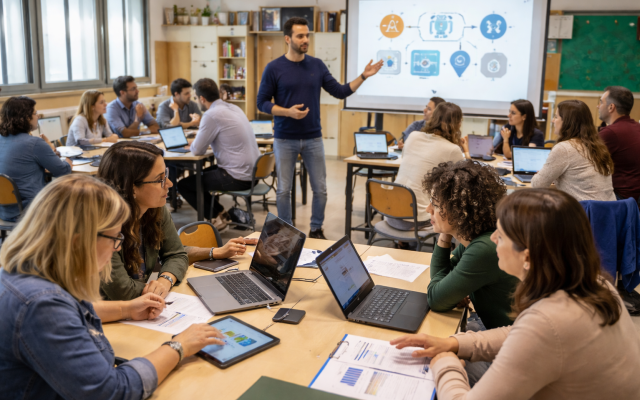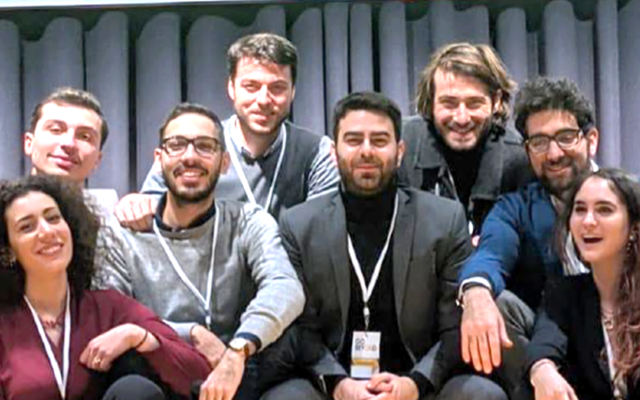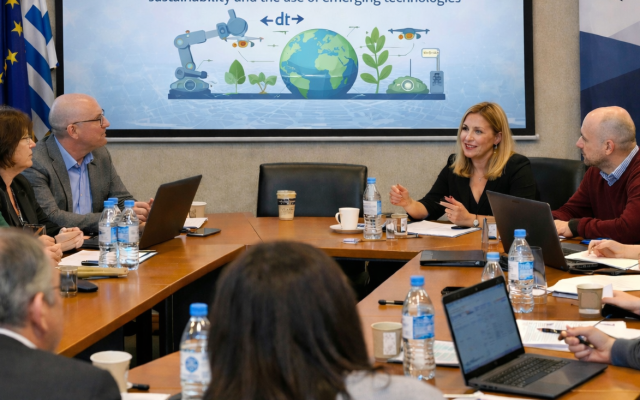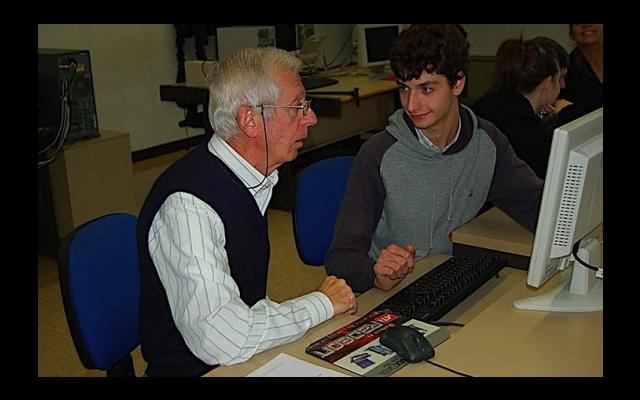Tullia describes her first digital and media literacy session in Milan
Are we sure that we must necessarily lose skills, clarity, and enthusiasm with age? Perhaps, we should get rid of some bias about ageing with the help of projects such as e-EngAGEd(Intergenerational Digital Engagement) funded by the European Commission (Cerv-2022-Citizens-Civ Project n. 101081537), which aims to improve media literacy skills, linked to the conscious use of information communication technologies, in order to counter misinformation and recognize misleading news.
With the participation of upper secondary schools such as the Milan G. Feltrinelli, the training sessions held by third year students has begun. Over the course of seven meetings, the young tutors will teach a group of people aged 65-85 all the secrets of technology. “Secrets for the participants, that are obvious for the students, who send e-mails, shop on-line, and book trips on-line with natural spontaneity, as part of everyday life. While for the elderly it is a continuous challenge," explains Tullia Romanelli, local coordinator for the Fondazione Mondo Digitale. “As I walk between the desks in the two computer rooms, I realize the great variety of topics covered. There are those who want to learn to use e-mail to reply to friends, those who wish to improve their use of Google Maps so as to not get lost around Milan, and those who want to learn everything about the SPID to send mail and packages around the world.”
The energy and enthusiasm are palpable and are transformed into the words of the students who say: "I would like to work with that nice gentleman, I think he has many interesting things to talk about." Computers and smartphones thus end up in the background for a moment and the tutor and elder share moments and life experiences that are central to their interaction. “If technological tools were created to simplify our lives, who knows, they might also connect lives that are very distant from each other and the consequent learning would certainly be bilateral,” added Tullia.
To the surprise of the real teachers, by the end of the first session, the students begna using new phrases. “Ma'am, can I help you put on your coat?”, “Please cover up well as it's cold outside” and “Have a nice week and have a nice snack, you've worked so hard.” And, at the same time, the elders started saying “Have you guys read this book about the reigns of Peter I and Catherine the Great? It could help you understand current geopolitics." So, if from the beginning the elders were already grandparents, after the first meeting, the students had become new relational grandchildren. It was in this climate that, on the way out, I overheard a conversation between one of the older ladies and two student tutors: "I would have asked you to accompany me to the tram stop, but perhaps I could try to find it alone with my maps app.”
“Learning generates learning, be it technological, historical, or simply relational. With renewed trust in the new generations, we look forward to the next meeting which will be held next Tuesday," concludes Tullia.




